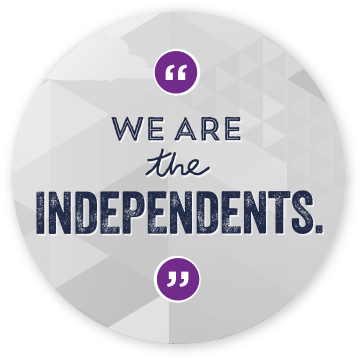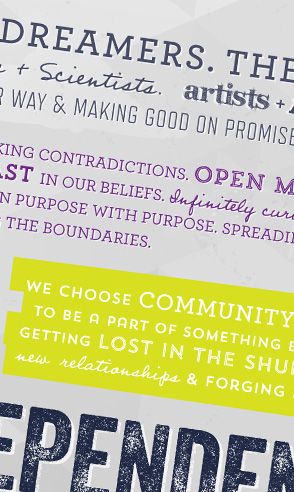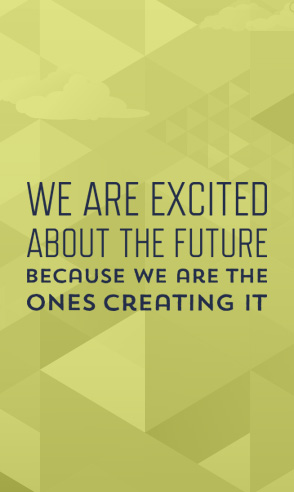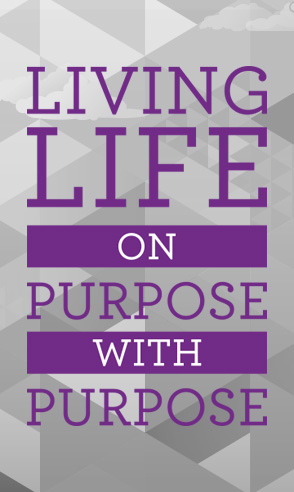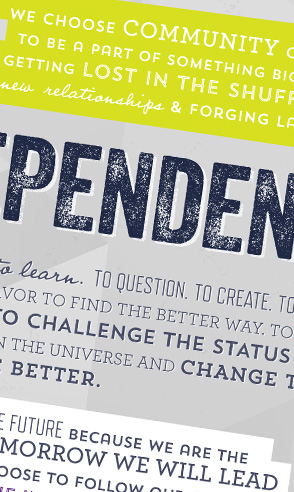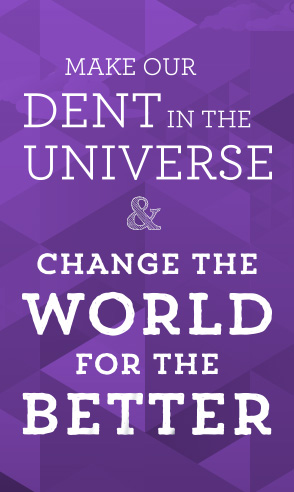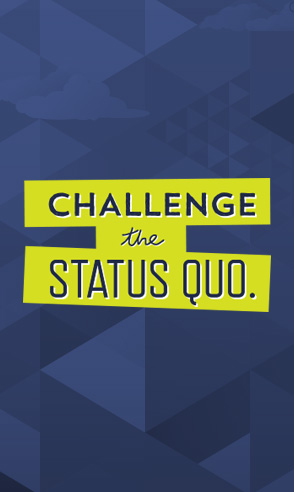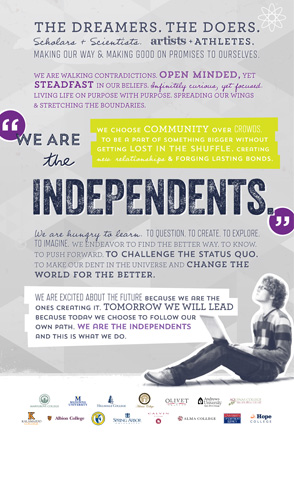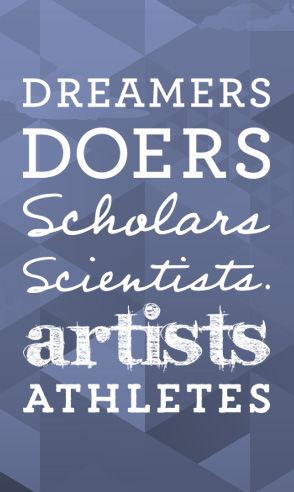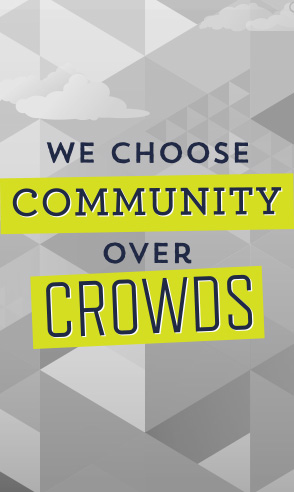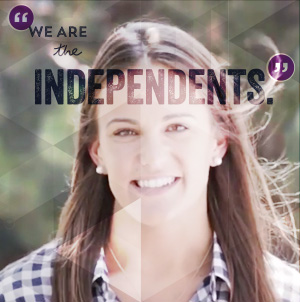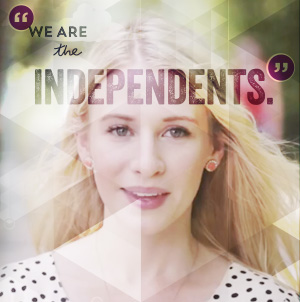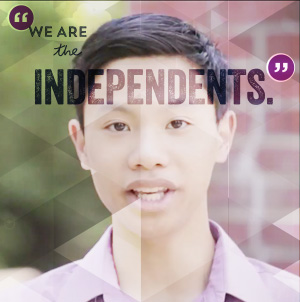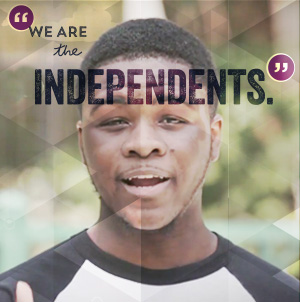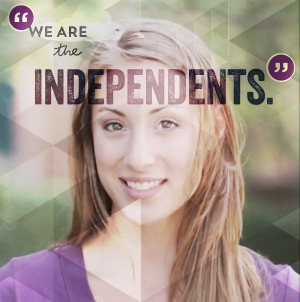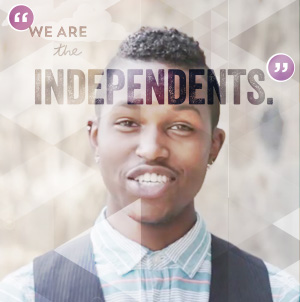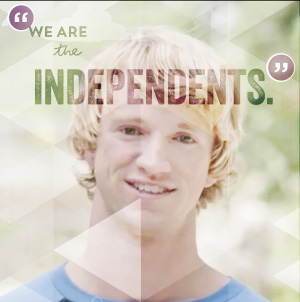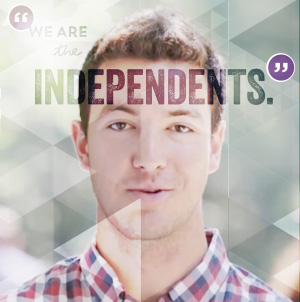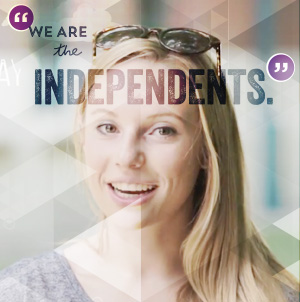Blog
Albion Student Selected for International Workshop
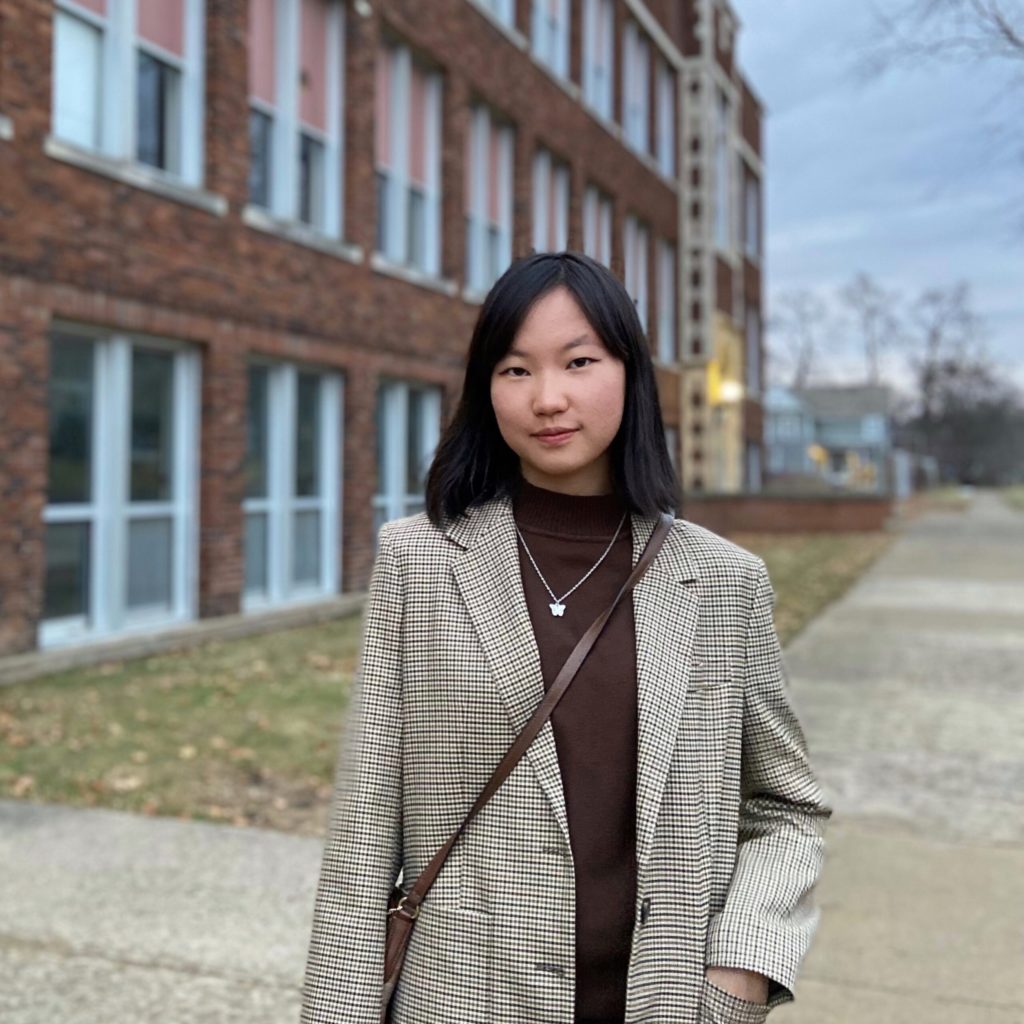
Enkhmaa Buyanbadrakh ’26 recently was selected to attend the Leaders Across Borders workshop scheduled for next year in Northern Ireland.
The workshop focuses on developing intercultural competencies and conflict mediation skills. It is coordinated by Ohio Wesleyan University, and supported through the Mellon Global Crossroads Initiative via the Great Lakes Colleges Association.
The workshop aims to help students acquire and/or apply cross-cultural communication skills; utilize intellectual curiosity about other cultures, peoples, and ethnicities; and demonstrate peer leadership and conflict mediation skills.
From May 20-27, 2025, the students will participate in the Leaders Across Borders Workshop in Belfast, Northern Ireland.
Buyanbadrakh, an international student from Mongolia, is a double major in computer science and accounting with C.P.A. emphasis. April Grow, a technical lecturer in the Mathematics and Computer Science Department, said Buyanbadrakh is a distinguished student in the classroom and actively engaged with various groups on campus.
Buyanbadrakh is president of the Asian Cultural Engagement Group, a global peer advisor for other international students, an undergraduate research fellow with the 2024 FURSCA program, and volunteers as a VITA tax preparer. She also is a member of Phi Beta Kappa honor society and Omicron Delta Kappa honor society.
Calvin University Expands Degree Completion Programs to Serve Adult Learners
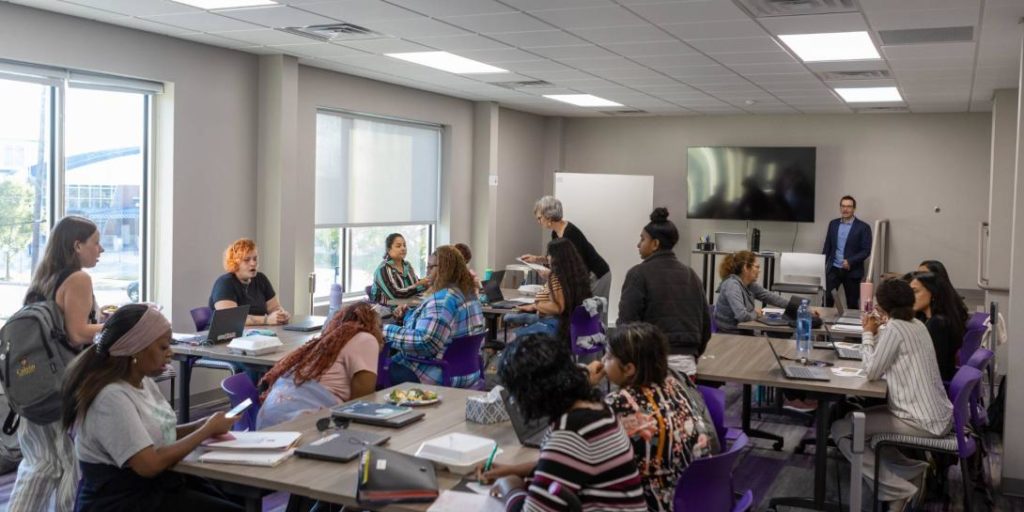
Written by John Zimmerman
Calvin University announces the launch of new programs designed for adult learners who started a bachelor’s degree but never completed it. Nearly two million Michiganders have some college credits but no degree, a significant portion of the state’s population. Calvin’s new degree completion programs offer two interdisciplinary, career-focused options to help this population complete their degree: Applied Leadership and Human Services.
“I’ve seen how earning a bachelor’s degree can impact the lives of adult learners,” shared Abbie Lipsker, director of continuing studies at Calvin. “From enhanced career opportunities to personal dream fulfillment and a more expansive view of the world, earning a BA can set whole families on a better trajectory.”
A Broader Vision for Lifelong Learning
These new programs are part of the university’s strategic expansion to address the needs of nontraditional students who are seeking an accessible, high-quality education that will advance their careers and their community impact. “Calvin University’s mission has always been rooted in serving a diverse range of learners, equipping them for leadership and service,” said Kevin den Dulk, associate provost. “These new programs reflect our ongoing commitment to opening doors for adult students, helping them overcome barriers and achieve their academic and professional goals.”
Hybrid Learning: Balancing Place-Based with Online
Built to ensure persistence, adult learners in these programs will meet on campus one evening per week alongside a cohort. With awareness of the competing priorities of adult learners, some coursework can be completed online asynchronously. “We understand the value of networks and learning from each other, especially in adult learner communities, where students bring so much prior learning to the classroom,” said Lipsker. “While much of the coursework can be done on a student’s own time during the week, having a place-based aspect will deepen the experience and facilitate interpersonal connections.”
Addressing Regional Workforce Needs
The Applied Leadership and Human Services degree completion programs join a growing roster of initiatives designed to enhance regional workforce development. Calvin offers a variety of non-credit professional development programs, such as Second Chance Hiring for HR professionals, as well as master’s degrees in nearly a dozen fields, including a Master of Social Work, the newest addition coming in fall 2025. These programs highlight the university’s commitment to meeting community and industry needs.
A Vision for the Future
The expansion aligns with Calvin’s Vision 2030 strategic plan, which emphasizes service to the city as a trusted partner, including offering accessible, flexible learning options that promote a thriving, healthy community. “Calvin’s mission invites us to think expansively about education,” den Dulk added. “We are excited to welcome a new wave of learners who will bring their talents and experiences to our Christ-centered community.”
Learn more about Calvin’s bachelor’s degree completion programs at calvin.edu/go/complete.
Creating Connections: How Generosity Is Shaping Futures at CCS Scholarship Luncheon
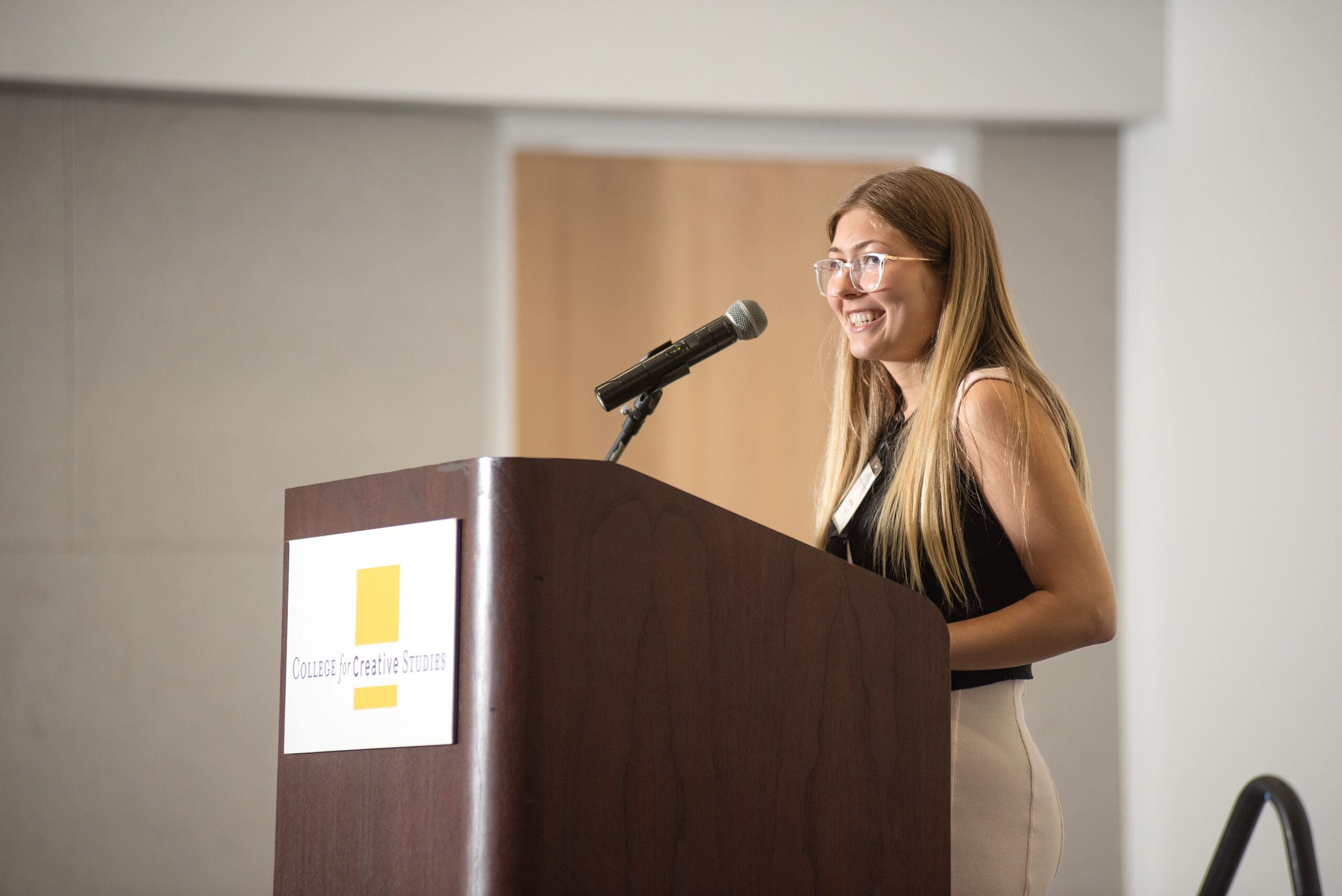
Photo Credit: Lesley Mason ’00 Photography
At a recent donor appreciation luncheon hosted by the College for Creative Studies, donors and scholarship recipients gathered in the General Motors Auditorium at the A. Alfred Taubman Center for Design Education to celebrate the transformative power of education – and the generosity that makes it possible. Held on October 22, the event provided a meaningful platform for heartfelt connections between those who give and those who benefit from their support.
Jim Nicholson, Chair of the Board of Trustees, spoke about the profound impact philanthropy has on the college community. “Every scholarship represents a story of hope and ambition,” he said. “It’s our responsibility to invest in these talented individuals who will shape the future of our industries. Your contributions are not just financial support, they are lifelines that help students reach their full potential.”
As attendees listened, they were reminded of the difference philanthropy makes for students navigating the challenges of college. Guests heard firsthand how scholarships have transformed lives, opening doors to education and brighter futures.
A senior scholarship recipient at CCS shared how pivotal his scholarship has been to his journey. “About four years ago, I didn’t think I would have the opportunity to graduate from CCS… I genuinely had no clue how I would afford college, much less a school as prestigious as this one.” Now on track to graduate in 2025, he expressed deep gratitude for the experiences his scholarship made possible, from studying abroad to gaining skills and mentors that have “changed the trajectory” of his life. “This career path wouldn’t have been possible without donors taking a chance on me,” he said, adding that he hopes to one day support students just as he has been supported.
For him and many others, scholarship support has been the difference between dreams deferred and dreams realized. Another scholarship recipient shared her journey to CCS, recalling both the excitement of her acceptance and the sense of relief that came with receiving scholarship support. Receiving the Alumni Scholarship, she said, was the moment she could finally focus on what truly mattered: making art. “Thanks to your generosity, I’m able to accomplish what I’m really at CCS to do: make art … I’m forever grateful that you choose to value our education, our artmaking and our financial success as young adults.”
CCS President Don Tuski emphasized the vital role scholarships play in shaping students’ futures. “I’ve witnessed firsthand the profound impact that scholarships have on our students’ lives. Your support not only lightens their financial load but empowers them to explore their full potential and push the boundaries of creativity,” he shared. “Today, we celebrate not just education, but the transformative role that creativity plays in shaping our future.”
Tessa Semma Jarbo, whose sister Kacy Semma Hall graduated from CCS in 2006, spoke movingly about the inspiration behind the scholarship that honors her sister’s memory. “Kacy’s cancer diagnosis became an invaluable lesson that life is not guaranteed for anyone and time is our most precious resource,” Jarbo shared. In establishing the Kacy Semma Memorial Scholarship, she and her husband Johnny sought to pay tribute to Kacy’s “creative spirit and commitment to nurturing the next generation of artists and designers.” She expressed their hope that the scholarship will “not only provide resources but also inspire recipients to give back to the creative community, continuing the cycle of inspiration that Kacy started.”
Katie Rusak, CCS Director of Advancement, echoed the importance of connecting donors with the students they support. “These moments of connection are what it’s all about,” Rusak shared. “Your support not only provides critical financial assistance but inspires our students to pursue their passions and dreams. We are here to recognize the profound impact scholarships have on our students’ lives, opening doors to opportunities that might otherwise remain closed.”
In closing, Rusak expressed heartfelt appreciation: “On behalf of the entire CCS community, I extend my heartfelt thanks to each and every one of you,” she said. “Your belief in our mission and in our students makes all the difference. You empower students to pursue their dreams without the burden of financial worry, and for that, we are forever grateful.”
Andrews University Student Association 2025-26 Senator Projects
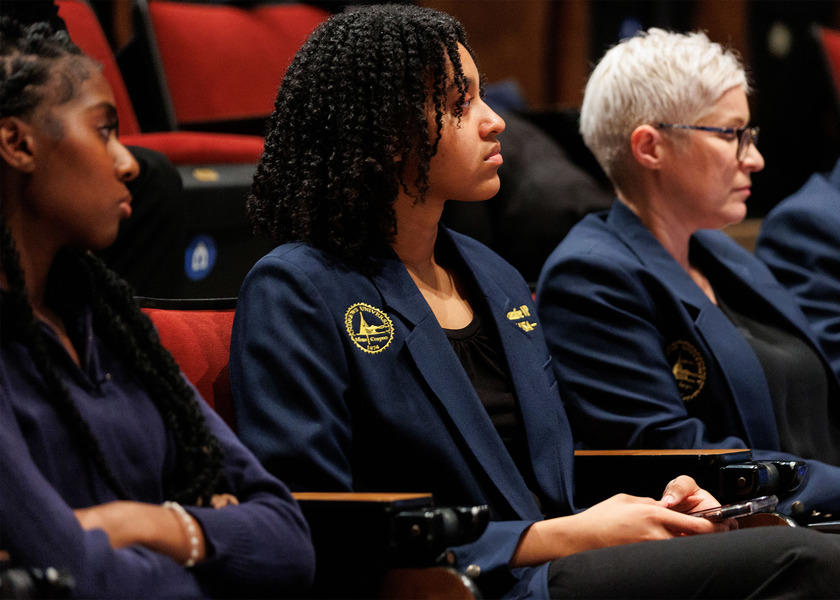
Each year, members of the Andrews University Student Association (AUSA) Senate are required to complete a campus-wide project that works to improve the student experience. This year, as the executive vice president of AUSA, I had the privilege of managing 27 senators as they completed great projects all around campus. Each project has a label indicating that it was “donated by the AUSA Senate 2025-26,” so keep an eye out for them around campus. Below is a list of each project and the senators who accomplished them.
1. Feminine products in various campus bathrooms: Rohannah Riley (junior, elementary education) and Celeste Velinova (junior, digital communications)
For this project, Riley and Velinova placed baskets of free menstrual products in the women’s bathrooms in Buller Hall, Nethery Hall, Harrigan Hall, and Bell Hall for students to use.
2. Cookware for Burman Kitchen: Yuseli Ochoa (senior, Spanish and speech-language pathology and audiology) and Niels ten Caat (sophomore, history)
For this project, Ochoa and ten Caat placed a new 23-piece nonstick ceramic cookware set in University Towers for students to check out and use.
3. Games for Lamson Hall: Nora Jean-Francois (junior, psychology), Shannon Barrow (sophomore, computer engineering), and Melody Pemberton (junior, history and secondary education)
For this project, senators purchased new board and card games (Uno, Dutch Blitz, Monopoly and Apples to Apples) to replace old games. Students can check out the games from the Lamson front desk to enjoy with their friends.
4. Study Bible Guides: Pau Khual (freshman, theology) and John Hakobyan (senior, computer science and history)
For this project, senators provided free Bible study guides for small groups to give students the resources needed to study the Word and grow in their faith. Students were encouraged to fill out the form the senators created in order to obtain a copy of the guide through the Center for Faith and Engagement (CFE).
5. Nintendo Switch and Games: Zachary Kis (sophomore, aviation) and Dean Caleb (sophomore, psychology)
For this project, senators purchased a Nintendo Switch and the games “Mario Kart” and “Super Smash Bros” for students to play in the AUSA recreational center downstairs in the campus center. Students can check the switch out at the front desk in the rec center.
6. PlayStation 5 (PS5) Headphones and Games: Donnie Vanterpool (senior, information systems) and Dean Caleb
For this project, senators purchased headphones for students to use while playing the PS5 in the AUSA recreational center downstairs in the campus center. They also added the games “EA Sports College Football 25” and “NBA 2K” to the PS5 and advocated for better ways to check out equipment from the rec center front desk.
7. Sports Equipment Replacement in Meier Hall: Raymond Manento (senior, computer science)
For this project, Manento replaced the basketballs and footballs found at the Meier front desk that students check out to use outside and ensured the proper storage and maintenance of the new equipment.8
8. New Ping Pong Table: Jonathan Pelote (freshman, theology), Kika Augusta (freshman, architecture), and Mugabe Menani (junior, nursing)
For this project, senators replaced the old ping pong table downstairs in the AUSA recreational center to enhance students’ experience with a newer, durable table.
9. Lamson Hall Courtyard Picnic Table: Brenna Lyons (junior, art and French), Valorie Pratley (freshman, sustainable horticulture), and Marky Telemaque (sophomore, political science and Spanish)
For this project, senators purchased and built a wooden picnic table to place in Lamson Hall’s cafeteria-side courtyard for students to enjoy on nice days when they need a break from studying.
10. SBSS Labianca Library: Audrey Lim (junior, sociology), Kaitlyn Yanez (sophomore, psychology), and Chrisan Valcin-Henry (senior, sustainable horticulture)
For this project, senators purchased new books to add to the Social Sciences and Behavioral Sciences Library on the second floor of Buller to provide diverse literary resources that reflect the experiences of various communities (Asian American, Latinx, Afro-Caribbean social movements, etc). They also purchased happy lights for the library, which assist with seasonal depression among library patrons.
11. Chapel Scanner Advocacy: Asha Caruthers (freshman, chemical engineering), Dévaneé Williams (sophomore, music composition), and Pierce Barrett (freshman, mechanical engineering)
For this project, senators worked with CFE to create a survey to gather student opinions on the current scanning-in and out methods used at Faith360 programs.
“I’m proud of all that the senators were able to accomplish this year,” said Patricia Fitting, assistant dean for co-curricular education and AUSA Senate mentor. “I believe they did a great job in providing some useful, fun, and positive projects to enhance campus life,” she said, despite the challenges that came with the process of choosing and gaining approval for their projects.
Finding a Job After College
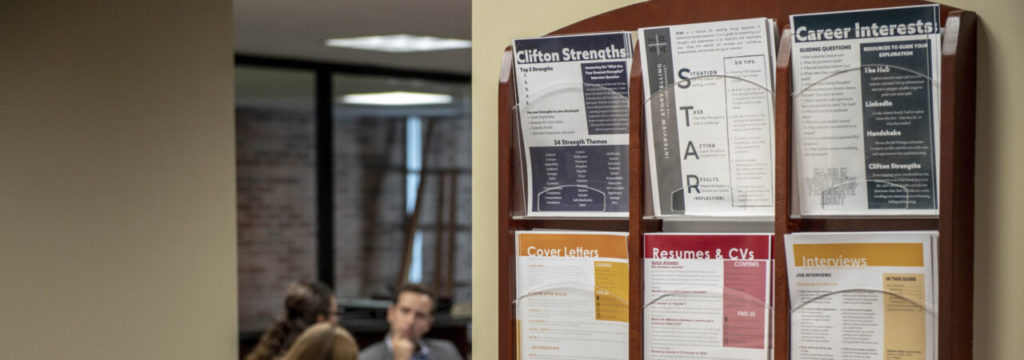
Written by Katrin Surkan
The post-college search for work can be nerve-wracking. After becoming expert students from the ages of 5 through 22, we are expected to know where to begin becoming experts in a world where we are paid for our skills. The four-ish years of college encourage young adults to find themselves, but then they are loosed to find a job. I am one of the lucky ones, coming into my senior year with a contract for post-college work. How did I find my job after college? Some luck, some preparation, and plenty of help.
I received some excellent advice all four years, and that helped me gather courage, experience, and the necessary information to take the next step in my search.
- Adapt your resume to the job description.
Make the resume easy to read. Fix formatting, keep all descriptions to one line, have a maximum of three descriptions per experience (remove the subjects and start with an active, exciting verb that ideally was in the job description itself), and sort by most recent date on top. Divide your resume into three or four categories that pertain to the job you are interested in (e.g. Experiences, Education, Extracurriculars, Leadership, Honors and Awards, Skills, Languages, Adventures, etc.). Keep it neat and to one page.
- Get started by doing something, anything!
Start early—freshman year—trying out (even volunteering for) jobs, opportunities, and internships that might interest you as a career. You may find that you hate something you thought you loved. Or that you could be paid for something you already do. Or you might fall in love with something that you had not known existed. Say yes to random little chances to help people, internship applications, on-campus jobs, talking to strangers, and anything that piques your interest. Better to know sooner rather than later what matters to you!
- Get an interview.
I was a horse tour guide in Iceland for a summer. Even though that has little to do with my potential careers, it makes interviewers more likely to invite me in to speak because they want to know more. I am sure you have done something that few people know much about, so get them to invite you in to ask questions by putting it noticeably on your resume or mentioning it in your email. It also helps to know what the person you are writing to (HR manager, intern coordinator) enjoys hobby-wise, so see if you can hunt down a hobby or two of theirs.
- Play to your strengths.
If you have excellent soft skills, go network and meet people. Apply for jobs that have you managing or dealing a lot with people. Look for opportunities to help or support others, as it will make them more likely to reciprocate—and jobs come from the most unlikely places! If you are introverted, focus on your skills and strengths in applications. Emphasize your abilities and expertise. Find a group that needs what you can offer.
- Be not afraid!
Employers were once young job seekers like you, and people are more helpful than you might expect. Ask questions, ask for the job, ask for an informational interview over LinkedIn or through Career Services. Talk to people you respect and to people who intimidate you. Chances are, you are just what they were looking for.
- Get an on-campus job.
Already, my freshman year, I began applying for on-campus jobs, practicing my cover letters, resumes, and informational interviews where little was on the line. By taking a small job on campus, I also acquired a reference for future applications! To help with my resume and letters, I met with Career Services and attended events that looked interesting, like the talk by an alumnus who graduated with a degree in philosophy and became a cybersecurity contractor. He inspired me to…
- Think beyond the major!
My degree is a mark of my interests rather than my skills. Yes, as an economics major, I can talk about supply and demand, but I could do anything with it!
Some alumni who have gone on to do fantastically interesting careers are…
Phillip Wegmann, ’15, a political economy major, is a correspondent at the White House
Kelsey Brakel, ’12, a biology major, became a veterinary pathologist
Stephanie Benson, ’03, a Hillsdale student-athlete who started a restaurant in Mississippi
Rob Schlitts, ’06, a communications major, founded a phonathon company, Wilson-Bennett Technology
Margaret Handel, ’17, an English major, became a commercial mariner
Madeline Johnson, ’17, a philosophy major, became an urban planner
Lydia Hall, ’19, an English major, became an associate production editor
Adrian College Announces First Intercollegiate Varsity Cornhole Team in Michigan
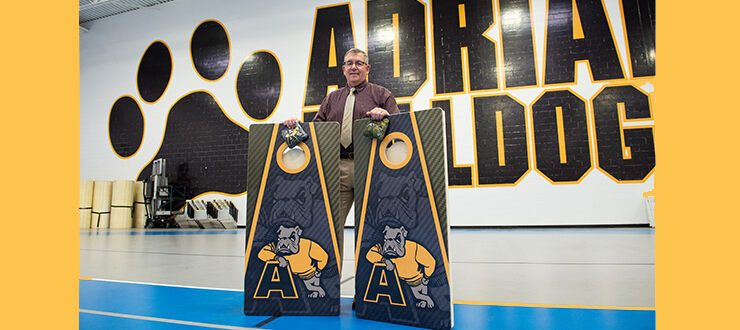
Tossing a bag into a hole has become extremely popular in backyards and tailgating events across the nation as the game of cornhole has evolved into a sport. Its players have also advanced, and now there are competitions at the collegiate and professional levels. The increased enthusiasm for the game has caught the attention of Adrian College and prompted the Bulldogs to create a collegiate cornhole program, scheduled to begin competing in the fall of 2022.
“Adrian College was recently recognized by U.S. News and World Report as the number one Most Innovative College in the Midwest, and this program reflects that honor,” Adrian College Athletic Director Mike Duffy said. “People will undoubtedly say, oh my goodness, there they go again with another cool idea at Adrian. Well, we relish these reactions because we embrace innovation that distinguishes Adrian College in the marketplace and appeals to student demand. This is no different than bass fishing, and several other unique initiatives in recent years that have proven to be so successful in attracting great students.” Adrian College won the 2021 bass fishing national collegiate championship.
Duffy expects the new co-ed sports program will attract a lot of students with the Bulldogs’ players having an opportunity to compete on a national stage against some of the greatest amateur and professional players in the world.
“It’s big across the country, and there is some local talent,” Duffy said of the sport. “I expect we’ll bring in 40 to 50 students with this new program.”
He added that cornhole is an inexpensive program to run with limited equipment and travel costs. The Bulldogs already have a main sponsor backing them with Killshots Cornhole, a national cornhole equipment manufacturer located in Adrian, donating custom bags and boards.
The Bulldogs do not need to build a facility for the program, at least right away, Duffy said, “Because our athletic facilities are beautiful and we have plenty of existing space to field a great team.” Duffy said Killshots is also looking into building a facility in Adrian to host tournaments that the Bulldogs will be able to utilize as well as the Adrian community.
“College/Community partnerships are very important to the College,” Duffy said, “everyone wins when we can find ways to work with our community.”
Adrian College joined the American Cornhole League (ACL) and would play in sanctioned tournaments across the nation. The ACL, formed in 2015, would pit Adrian College against teams from NCAA DI to DIII institutions. The National College Cornhole Championship’s open format allows any size college to participate.
There is an opportunity to add additional sponsors as the cornhole team will wear uniforms similar to the bass team’s with multiple program-supporting businesses featured on the jerseys.
Adrian College’s athletic department will hire a coach in the next month or two and begin recruiting athletes to be ready to start competing by next Fall.
This year’s national championship is in Myrtle Beach, S.C. the weekend of December 31st to January 2nd. The event will be featured on ESPN broadcasts.
In cornhole competition, players take turns throwing bags filled with corn kernels or resin at a raised platform board with a hole in the far end. A bag in the hole scores three points, while one on the board scores one point. Play continues until a team or player reaches or exceeds 21 points.
Duffy said the Bulldogs are taking this sport just as seriously as any of the others.
“We’ll treat it no different than football, baseball or any other sport,” Duffy said. “The end goal is we are trying to build a great experience for student-athletes while we grow our academic departments.”
Adrian College added 12 new academic programs last year to help increase the number of students on campus. Frank Hribar, Adrian College Vice President of Enrollment and Student Affairs, said the addition of this newest sport will definitely add to the overall experience at the college.
“There aren’t a lot of other colleges or universities that offer such a wide variety of academic and athletic programs,” Hribar said. “This new sport should receive a lot of attention and get additional students looking at Adrian College who otherwise may not have had an interest in coming to this area.”
The addition of the cornhole program increases the number of the Bulldogs’ sports teams to 50.
For more information about Adrian College and the programs it has to offer, visit Adrian.edu.
Adrian’s new athletic venture is a reflection of the many ways Michigan’s top 14 independent colleges and universities set themselves apart from bigger public institutions. They do this by encouraging students to forge success by following their own path. The colleges are smaller and emphasize community over crowds. Often less expensive than public institutions, the independents boast higher four-year graduation rates and smaller class sizes for a truly unique and affordable experience.
Be bold. Be different. Go independent.
What to Bring—and Not Bring—to Campus
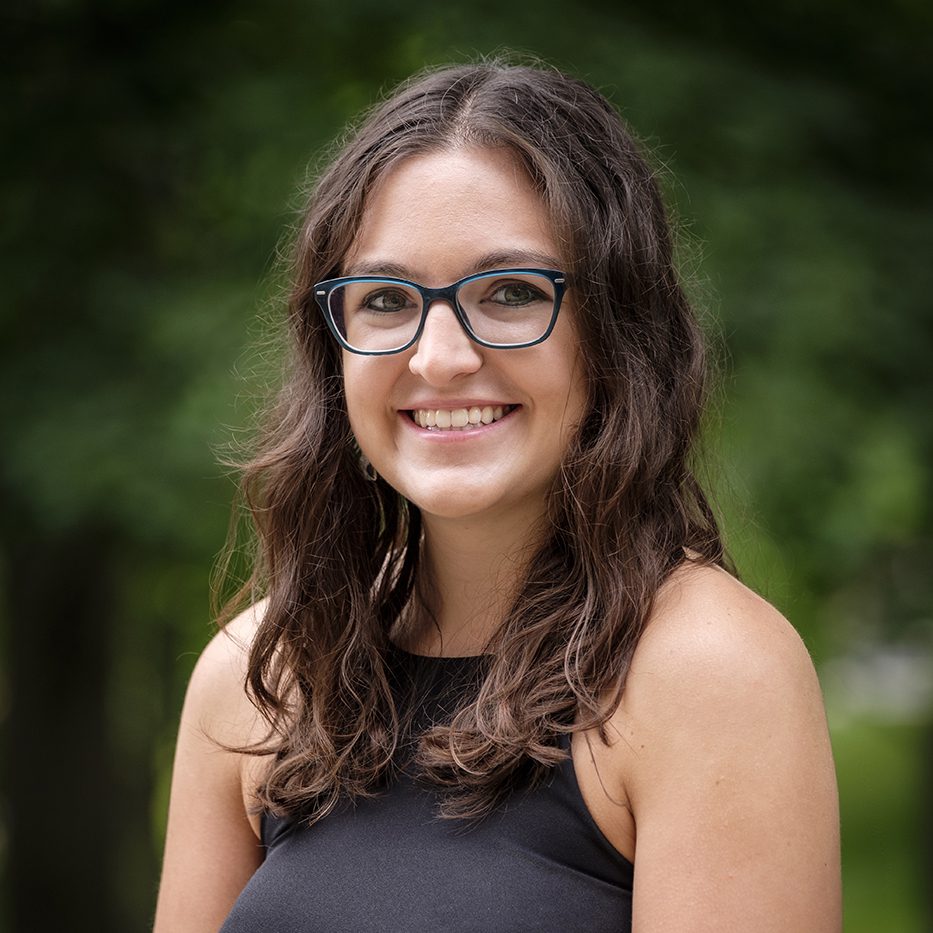
Originally posted at https://www.kzoo.edu/news/what-to-bring-to-campus-2021/
Written by Andy Brown.
Incoming Kalamazoo College students have several great sources for information on what to bring to campus this fall including Residential Living’s online guidance and advice from recent alumni such as Lezlie Lull ’20.
Lull, an admission counselor at K, lived on campus for two years including one as a resident assistant in Crissey Hall. Now, she has conversations with prospective students that include her advice for residence hall life.
“Some students come in very worried about having never shared a room before,” Lull said. “I make sure that they’re aware of knowing how we match roommates and their ability to contact a roommate in advance.”
After easing those concerns, and given her first-hand experience, Lull suggests considering what not to bring, communicating early and often with roommates, and including a few personal items that can make your room feel more like home and smooth your transition on move-in day, September 8.
What not to bring
Lull said what not to bring to campus is just as important as what to bring. Residential Living has a list of prohibited items. Plus, the idea that less is more can save space in close quarters.
“More often than not, I had too much in my room my first year,” she said. “I often thought, ‘Why do I have all of this?’”
A convenience item such as a microwave might seem like a good idea, she said, yet each hall lounge has one that’s immediately available, so it might not be a critical item. Rethink bringing anything that might just take up space or anything you can buy later in Kalamazoo. Residential Life doesn’t keep floor-plan measurements for specific rooms. However, students may look at pictures of residence hall rooms in K’s virtual tour to estimate their potential floor space and where space might be tight.
The one exception to the less-is-more idea might be cold-weather clothing.
“One thing for some—for out-of-state students especially—would be the importance of bringing sweaters and winter coats,” Lull said. “When the first cold weather comes in October, many are stuck with only a pair of jeans and flip flops.”
Communication is key
Even someone who is shy will benefit from reaching out to their assigned roommate before arriving on campus. K students living on campus this fall should already have received their room assignment with their roommate’s name and kzoo.edu email address. Sometimes the benefit is ensuring you don’t bring more than one of the same item. Other times, it helps set agreements between roommates as they get to know each other’s personal routines.
“My first roommate and I weren’t the best of friends, but we got along in the necessary areas,” Lull said. “I think the issues we had were all a lack of communication, whether that was in the moving process or later on. I think it’s a lot easier if you can talk to them in advance, so you don’t show up with two coffeemakers, two refrigerators or multiple items of everything in the room.”
Home sweet home
When packing, think about bringing a couple personal items you can set up out of the way to help your space feel a little more like home.
“A lot of our decorations were things we could sit on our desk or put on the walls with sticky tape,” Lull said. “I also had window stickers we could put up. Other than that, we didn’t necessarily have a ton of stuff. I had string lights to hang pictures from home. My mom made me a pillow that had a picture of me and my dog on it. We also got rugs for the tile floor.”
The week ahead
After you’re settled, the adventure of orientation begins. A schedule for orientation is available at the first-year experience website, and Lull suggests participating as much as possible.
“I think orientation is a really good time to meet a lot of people,” she said. “Some people don’t take advantage of that. Some think, ‘Well, I’m really tired at 8 a.m. They’re not going to know if I don’t show up.’ But how many people are you not meeting because you weren’t there? I think students should be open minded and ready to meet and do everything. Buy coffee if you need to wake up, dress in layers if it’s cool in the morning, and take a water bottle with you in case it gets hot.”
It also helps that Michigan’s top 14 independent colleges and universities set themselves apart from bigger public institutions by encouraging students to forge success by following their own path. The colleges are smaller and emphasize community over crowds. Often less expensive than public institutions, the independents boast higher four-year graduation rates and smaller class sizes for a truly unique and affordable experience.
Be bold. Be different. Go independent.
Five Tips for an Epic First Year
Originally posted at: https://www.alma.edu/live/profiles/8705-five-tips-for-an-epic-first-year
From taking notes to living away from home, your first year of college will go smoother if you know what to expect. Rely on current and recent students to offer the best advice.
Every college student has concerns or challenges during their first year. While some end up being no big deal, others may require some major changes. Liney Figueroa of Muskegon, now a senior at Alma College, offered these tips to students who are just starting out:
Try to have perfect attendance in your classes
There may be things that come up that make this impossible. But as far as a goal goes: go big or go home, right? Studies show that students who go to class and take notes do the best, regardless of how “smart” they might be. Plan your class schedule in a way that works best for you and pay attention to yourself more than anyone else. Liney uses a planner and charts every day out the night before, to make sure she’s prepared for whatever comes.
Take notes the old-fashioned way
I’m not going to tell you to never use your phone. More than likely, you know there’s a time and a place when it’s appropriate to use it and when it’s inappropriate — like, during a lecture. Consider using a pen and paper to write notes in class, instead of a laptop. Studies show you’ll remember more that way. You can always copy your notes to your laptop after class.
Meet with each of your professors for office hours at least once every term
Professors are required to set aside office hours, which are special days and times to meet with students in a 1-on-1 setting. You can usually find this information in the course syllabus you received at the start of the term. Your professors can help in all kinds of ways, in and out of the classroom — from going over coursework in a private environment, to discussing college life, to figuring out life after college. More importantly, your professors WANT to help — so help them, and take that first step toward getting to know them better.
Ask for help when you need it
The difference between “high school you” and “college you” is that you’ll be the main person in your life who deals with your problems. Even as a high achiever in high school, Liney found that college was more challenging. She wasn’t used to asking for help for her classwork, but eventually came around to the idea that she couldn’t deal with everything by herself. Ask around and seek out the BEST person to help you with your individual problem. For example: a resident assistant can help with issues in your residence hall, an academic advisor can help choose your major and a health professional can help with anxiety.
Join at least one extracurricular activity
So far, we’ve mostly focused on academics — with good reason, because doing well in your courses is the best way to have success after you graduate. But using your time away from class in constructive ways is also important. Joining an extracurricular activity gives you an easy way to meet other college students who are going through the same things you are. Liney said coming to college seemed intimidating at first, until she started getting more involved in student affairs. There, she said, she found fun things to do in her free time and made friends for life.
Michigan Colleges Alliance Bonus Tip: Be Different.
Consider Michigan’s top 14 independent colleges and universities, where students forge success by following their own path. The colleges are smaller and emphasize community over crowds.
Often less expensive than public institutions, the independents boast higher four-year graduation rates and smaller class sizes for a truly unique and affordable experience.
Be bold. Be different. Go independent.
‘Hail Adrian!’ voted best fight song in NCAA Division III
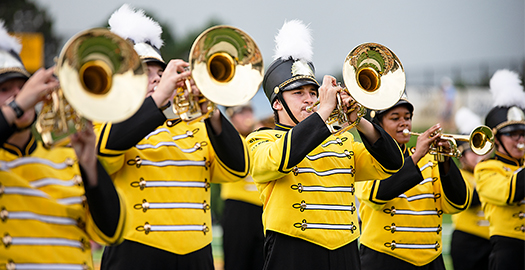
Originally posted at http://adrian.edu/news/hail-adrian-voted-best-fight-song-in-ncaa-division-iii
Bulldogs of all types are very dedicated to their families — especially Adrian College’s Bulldogs. When recently called on to support their college fight song, Adrian College’s students and alumni responded. The Bulldogs quickly recorded more than enough votes on D3Playbook’s Twitter account to make their fight song No. 1 in the National Collegiate Athletic Association’s Division III.
Adrian College’s “Hail Adrian!” rose to the top of the 32-school D3 Fight Song Madness bracket and was the winner over Heidelberg University’s “Victory March” by a margin of 55-45 percent in the finals, with almost 1,100 votes tallied.
The story behind Adrian College’s current fight song began in the fall of 1988 when Darin McNabb, Class of ’89, went to his band instructor and asked if he could write a new one. He was given the green light and the new song was a hit and played for the next couple of seasons before getting shelved.
In 2007, McNabb heard the Bulldogs were creating a new marching band and asked the band director, Dr. Marty Marks, if he could rework his old fight song and create an updated version they could play. The idea was taken to Adrian College President Jeffrey Docking and he gave the go-ahead to update the song. Just a couple of months later, the marching band was proudly playing “Hail Adrian!”
McNabb said his inspiration for the song came from “The 40 Greatest College Fight Songs,” recorded by the University of Michigan marching band.
“If one listens closely to my new Adrian fight song, they can hear musical references to the fight songs of Northwestern, Wisconsin, Michigan State and the University of Michigan,” McNabb wrote in a 2008 Adrian College alumni magazine. “Yet, Hail Adrian! Is written to sound uniquely its own.”
McNabb went on to explain in the story that he wanted the words of the song to be non-gender and non-sport specific.
“I also wanted to promote a positive up-beat message that included references to school pride, school colors, a supportive crowd, and the Bulldog mascot,” he said in the article. “Finally, I wanted to be sure to include the words “heroes,” “champions,” and “victory,” to convey the concepts of excellence, pride and success, concepts I think Adrian College has always strived to instill in its graduates.
“I am so proud to know that my music will help create that great atmosphere found only at collegiate athletic events for many years to come,” McNabb said.
Hail Adrian!
Hail, hail to Adrian —
The home of the Black and the Gold!
Cheer, cheer for Adrian —
Lift high your voices, proud and bold,
“Go, Dawgs, Go!”
Fight, fight for Adrian —
And champions again we will be!
Our heroes will score,
and the crowd will roar,
“Another Bulldog victory!”
At Michigan’s 14 independent colleges and universities students forge success by following their own path. The colleges are purposefully smaller and emphasize community over crowds. Classes are taught by award-winning faculty rather than TAs, allowing students to forge tight bonds with professors. Often less expensive than public institutions, the independents boast higher four-year graduation rates and smaller class sizes for a truly unique and affordable experience.
To learn more about Michigan’s top 14 private colleges and universities, visit our Colleges page.
Scholarships are available! Enter the We Are The Independents scholarship drawing.
Aquinas College, the University of Detroit Mercy, Alma College and Olivet College among the nation’s top military-friendly schools
Originally posted at https://www.aquinas.edu/life-aq/posts/aquinas-college-named-one-nation’s-top-military-friendly-schools?fbclid=IwAR1xOvj_xPA0nMVZczsQoHRjQ4bk_6MrMCne3nSR-Alei64K8QmZ8i8bSXc
Aquinas College, the University of Detroit Mercy, Alma College, and Olivet College have each earned the 2021-2022 Military Friendly® School designation by Viqtory for their support of active-duty military members and veterans attending school.
The 2021-2022 Military Friendly Schools list is the longest-running and most comprehensive review of college and university commitment to serving military and veteran students. It helps service members and their families select schools that will provide education and training necessary to pursue a successful civilian career.
The list is published by Viqtory, a service-disabled, veteran-owned small business that connects the military community to civilian employment, educational and entrepreneurial opportunities through its G.I. Jobs and Military Friendly brands. The list will appear in the May issue of G.I. Jobs magazine and can be found at www.militaryfriendly.com.
“Military Friendly is committed to transparency and providing consistent data-driven standards in our designation process,” said Kayla Lopez, National Director of Military Partnerships at Military Friendly. “This creates a competitive atmosphere that encourages colleges to consistently evolve and invest in their programs. Schools who achieve designation show true commitment and dedication in their efforts. Our standards assist schools by providing a benchmark that promotes positive educational outcomes, resources, and support services that better the educational landscape and provide opportunity for the Military Community.”
Institutions earning the Military Friendly School designation were evaluated using both public data sources and responses from a proprietary survey. More than 1,200 schools participated in the 2021-2022 survey with 747 earning the designation.
Methodology, criteria, and weightings were determined by Viqtory with input from the Military Friendly Advisory Council of independent leaders in the higher education and military recruitment community. Final ratings were determined by combining the institution’s survey response set and government/agency public data sources, within a logic based scoring assessment. We measure the institution’s ability to meet thresholds for Student Retention, Graduation, Job Placement, Loan Repayment, Persistence (Degree Advancement or Transfer) and Loan Default rates for all students and, specifically, for student veterans.
Michigan’s independents recognize the importance of the sacrifices made by veterans, and make accommodations from mentoring programs and support services to ease the transition.
The colleges are purposefully small. Smaller class sizes allow passionate faculty to form bonds with students that just aren’t possible at larger universities. Instead of crowds, the colleges emphasize community. Often less expensive than public institutions, the independents boast higher four-year graduation rates and smaller class sizes for a truly unique and affordable experience.
Be bold. Be different. Go independent.
